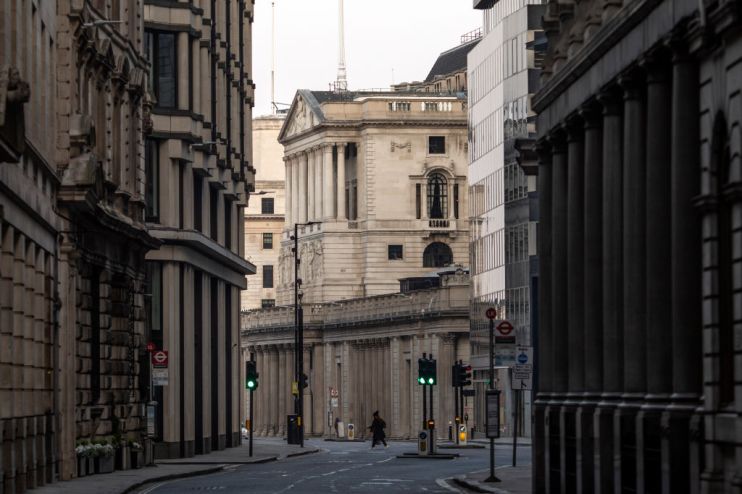Coronavirus: Bank of England says 35 per cent GDP drop ‘not unrealistic’

A Bank of England deputy governor has said the economy could shrink by 35 per cent in the second quarter if the coronavirus lockdown lasts three months, saying the scenario produced last week by the UK’s budget watchdog was not “unrealistic”.
The Office for Budget Responsibility (OBR) said the UK economy could contract by 35 per cent in the April to June period and 2m people could lose their jobs due to coronavirus restrictions.
BoE deputy governor Ben Broadbent today said on a call with UK businesses that he thought the prediction was “not an unrealistic number”.
His statement echoed the Bank’s governor Andrew Bailey, who on Friday said he also thought such a fall in output was possible. “I don’t think there is anything implausible about a second-quarter number of that nature,” Bailey said on a call with reporters.
Broadbent today said the Bank could not say for sure whether there would be “scarring” on the economy or a quick rebound.
He said: “The only thing I’ll say about the scarring effects is the entire thrust of public policy as I see it is directed towards minsimsimg those effects.”
Yet he said there could be some longer-term damage to the economy if people’s “natural caution” meant consumers and workers did not return to their pre-coronavirus habits.
Sign up to City A.M.’s Midday Update newsletter, delivered to your inbox every lunchtime
“In certain areas it’s hard to say the extent of these effects, but the binding constraint may be behavioural rather than formally what the government does,” Broadbent said.
Broadbent added that government policy would be key here. He said it is important that “when it is safe for people to go back to work that [the government] actually positively encourages people to do so”.
Bank of England not doing ‘monetary financing’
The deputy governor for monetary policy also said the Bank is not engaging in “monetary financing”. This is when a central bank directly funds government spending.
The Bank has extended the so-called ways and means facility, effectively an overdraft for the government to borrow from. However, the BoE says this is only temporary.
Some critics say that the bank’s huge quantitative easing (QE) bond-buying activity in the secondary market is monetary financing and could drive up inflation.
Others have argued that the Bank should start funding the government in these unprecedented times.
Broadbent today said the Bank was not engaged in monetary financing because it was not being forced by the government to support spending.
“I don’t think it’s possible to define monetary finance purely in terms of the nature of the financial transactions involved,” he said.
He said the difference between monetary financing and what the BoE is doing is that “we are conducting QE for the purposes of our remit”, which is to keep prices steady.